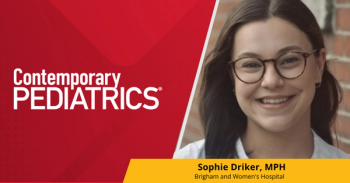
Childhood Paracetamol Use Linked to Later Asthma Symptoms
The use of paracetamol (acetaminophen), whether in the first year of life or later in childhood, is associated with higher risk of asthma symptoms at ages 6 and 7, according to research published in the Sept. 20 issue of The Lancet.
FRIDAY, Sept. 19 (HealthDay News) -- The use of paracetamol (acetaminophen), whether in the first year of life or later in childhood, is associated with higher risk of asthma symptoms at ages 6 and 7, according to research published in the Sept. 20 issue of The Lancet.
Richard Beasley, of the Medical Research Institute of New Zealand in Wellington, and colleagues analyzed data from 205,487 children in 31 countries. Parents of these 6- and 7-year-olds answered questions about children's symptoms of asthma, eczema and rhinoconjunctivitis, along with history of paracetamol use.
The use of paracetamol for fever during children's first year of life was associated with an elevated risk of asthma symptoms (odds ratio, 1.46), the researchers report. High and medium recent use of paracetamol was also associated with increased risk of asthma symptoms compared to no use (ORs 3.23 and 1.61, respectively). Use of the drug, either recently or in the first year, was also associated with higher risk of symptoms of eczema and rhinoconjunctivitis, the investigators found.
"Paracetamol use at recommended therapeutic doses could result in depletion of glutathione and glutathione-dependent enzymes, thereby reducing the ability to withstand oxidative stress. The generation of reactive oxygen species after allergic, viral or other non-allergic stimuli may then result in enhanced inflammation, which could lead to the development or worsening of pre-existing asthma, rhinoconjunctivitis or eczema, dependent on the organ systems affected," the authors write.
Glaxo Wellcome New Zealand and Glaxo Wellcome International Medical Affairs provided funding for the study. Beasley disclosed a financial relationship with GlaxoSmithKline.
Copyright © 2008
Newsletter
Access practical, evidence-based guidance to support better care for our youngest patients. Join our email list for the latest clinical updates.






